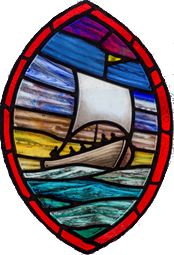Approaching Easter – A timely reflection by Fr. Ultan McGoohan, Chair of the Board of Management
Easter falls early this year. While Christmas has a certain sentimental glamour attached to it, people as they grow older often discover a deeper appreciation of Easter. With the exception of the ubiquitous chocolate eggs, Easter is not colonised by commercialism to the extent that Christmas is. The story of the passion of Jesus Christ touches on our lived experience of love and loss, pain and betrayal. After the effort made during Lent and the drama of Holy Week, the celebration of the Resurrection of Christ lifts our spirits and it seems to resonate with the world around us, as the darkness of winter makes way for the freshness of Spring and the hope of the summer to come. Easter brings to the fore the possibility of beginning again, letting go of former ways and putting on Christ.
This Easter is particularly significant for Irish people as we mark the centenary of the 1916 Rising. In Kilmore Diocese we have strong connections with the leaders of that seminal event in the story of our nation. Sean MacDiarmada, whom one historian has called the ‘mind of the revolution’, hailed from the parish of Kiltyclogher. Tom Clarke’s father, James, was a native of the parish of Carrigallen. Peter Paul Galligan who led the rising in Enniscorthy was born in Carrigallen and following the death of his mother, was reared in Crosserlough.
The commemoration of 1916 inspires us to understand the complexities of Ireland at that time. It is not a simple story as we have come to appreciate in this decade of centenaries. It also challenges us to look at the Ireland the leaders hoped for and to see to what extent their hopes have been fulfilled in the ensuing century. The 1916 Proclamation guaranteed religious and civil liberties, equal rights and equal opportunities for all citizens and the pursuance of the happiness and prosperity of the whole nation and of all its parts, cherishing all the children of the nation equally. It was a radical manifesto then and it remains a radical manifesto today. While Ireland has achieved much in the last one hundred years, any national examination of conscience in the light of the Proclamation would indicate that we have not yet fulfilled the dreams of the Founders of the nation. We remain a deeply unequal society, with enormous social problems. We find ourselves in a dangerous situation where so many citizens feel alienated from the State. While it is fitting that we commemorate the events of a century ago, we ought to do so not in a sentimental way, but in a way that will inspire us to be a better country.
The proclamation also stated that, ‘We place the cause of the Irish Republic under the protection of the Most High God.’ One hundred years later there is a concerted effort by powerful voices to eliminate God and the values of the Gospel from the public life of our society. This ignores the reality that the founders of our nation were people of deep Christian faith and that the roots of our common bond as a people are Christian roots. Many of the wonderful things that happen in Ireland – in education, care for the vulnerable, and charitable endeavors – are carried out by people of faith. A society without a soul is an impoverished society.
The words of Padraig Pearse’s poem ‘The Fool’ have often resonated with me and they help us place this significant anniversary in context:
O wise men riddle me this, what if the dream come true?
What if the dream come true?
And if millions shall dwell in the house that I shaped in my heart, the noble house of my thought?
Lord, I have staked my soul,
I have staked the lives of my kin on the truth of thy dreadful word.
Do not remember my failures,
But remember this, my faith.
May I wish you a meaningful Lent and a blessed Easter.

